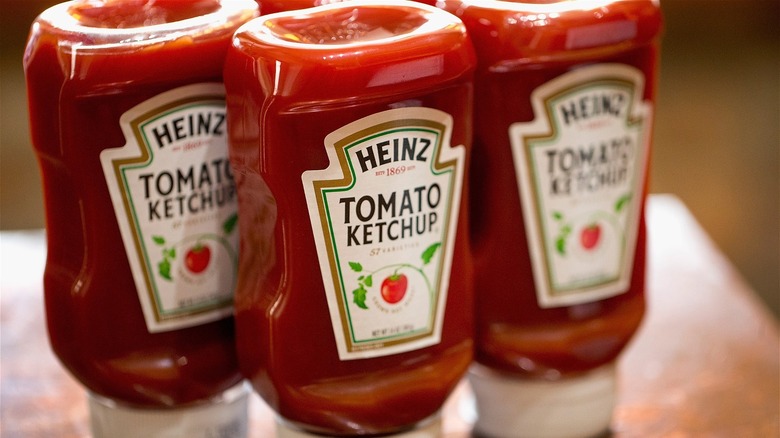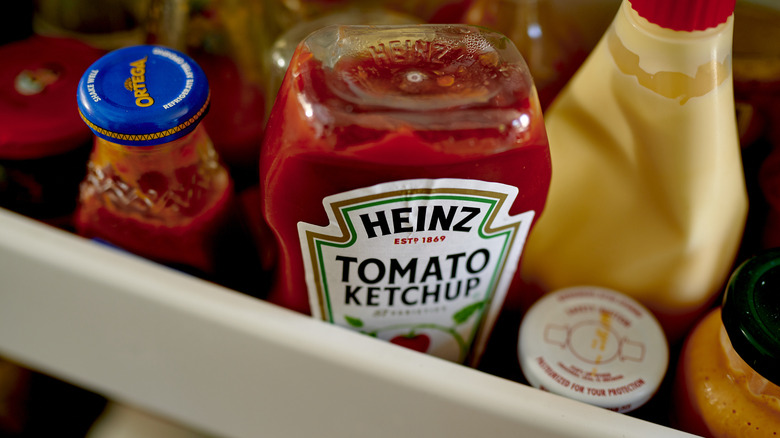Heinz Finally Solved The Ketchup In Fridge Debate Once And For All
There are some kitchen questions that seem as old as time itself, but no debate seems as controversial as trying to figure out which foods need to be refrigerated, and which ones can be kept in the pantry. It's especially confusing when it comes to condiments. There are some condiments you need to refrigerate and some you don't, and as a layperson, it's hard to tell which is which sometimes.
But what about Heinz ketchup? The company is settling the debate once and for all on whether its ketchup needs to be refrigerated.
In a post on Twitter, Heinz shared this conclusive statement: "FYI: Ketchup. goes. in. the. fridge!!!" The brand also shared the results of a poll, in which 13,178 Twitter users shared whether ketchup goes in the fridge or in the cupboard. The answer? Around 63.2 percent of respondents said the fridge. So why do 36.8 percent of people still think it can go in the cupboard, and why do so many restaurants have ketchup sitting out on the tables? The answer is a little more nuanced than you might expect, considering Heinz's strongly worded Tweet.
Why ketchup needs to be refrigerated
So why exactly is it that ketchup should be kept in the refrigerator? It turns out it has less to do with food safety, and more to do with quality. According to Heinz, "Because of its natural acidity, Heinz Ketchup is shelf-stable, but refrigerate after opening to maintain product quality" (via Twitter).
The United States Department of Agriculture's Food Safety and Inspection Service agrees; Its Food Keeper app says that condiments like ketchup, cocktail sauce, and chili sauce can be safely eaten even if they're kept at room temperature after opening. However, refrigeration will help the sauces maintain their quality over time, and help them stay fresh for longer. While ketchup can last for six months if refrigerated after opening, registered dietitian and nutritionist Isabel Maples told Hunker that consumers can "expect ketchup to last about a month if it's not refrigerated."
It could also depend on how much ketchup your household consumes. If you tend to buy a big bottle of ketchup and use it sparingly, the fridge is your best bet. But considering the fact that the average American eats a whopping 71 pounds of ketchup every year, some people might go through a bottle faster. If you're going to consume your bottle of ketchup within a month, you're probably okay leaving it in the pantry or on the counter. Any longer than that, or if you want to ensure it tastes the same from the first squirt to the last, keep it in the fridge.

